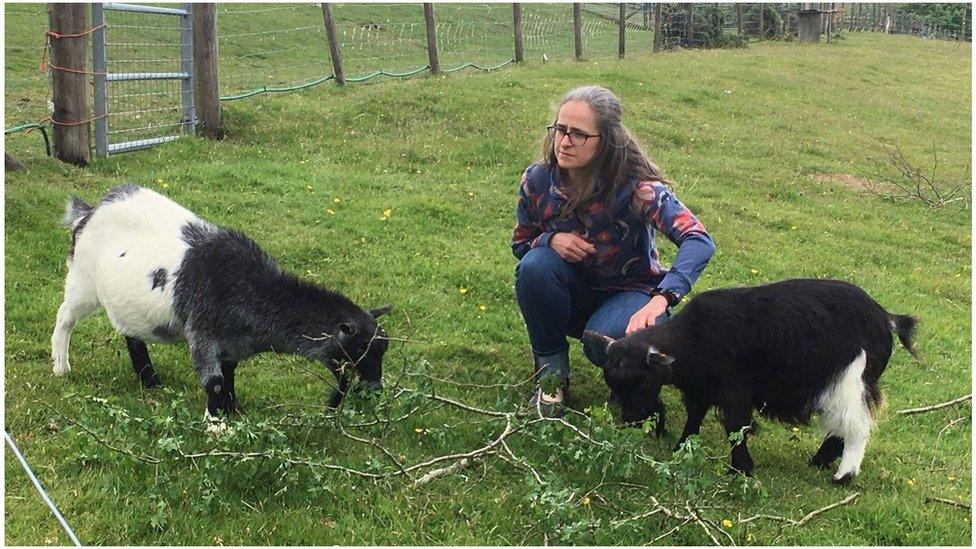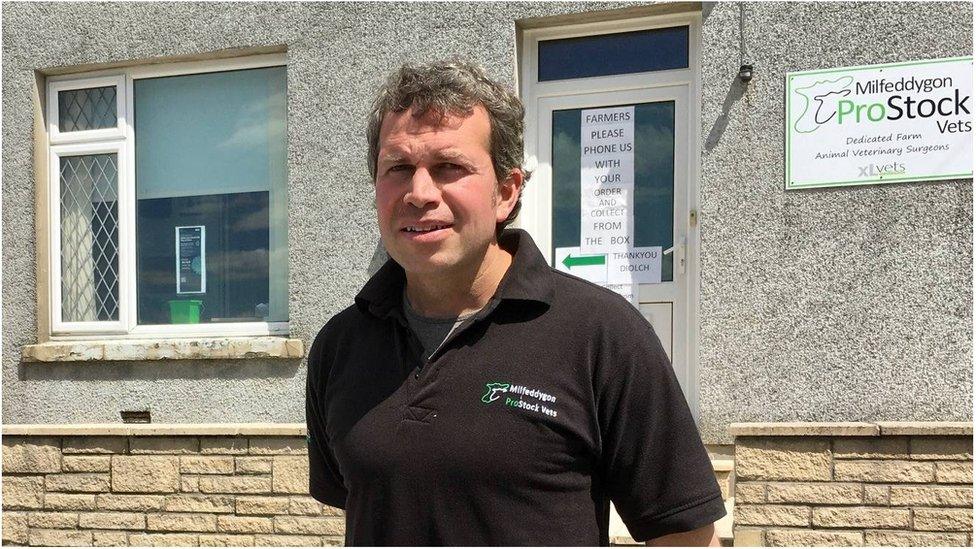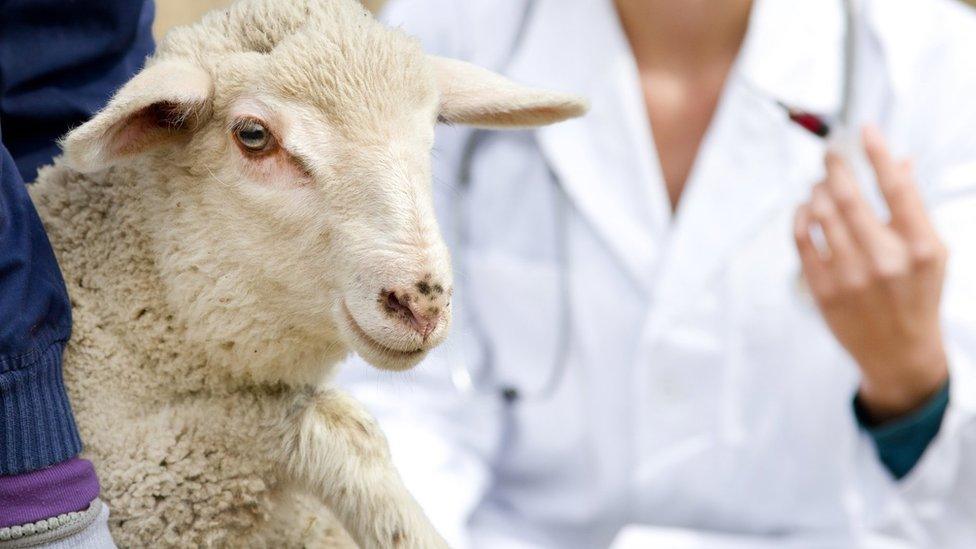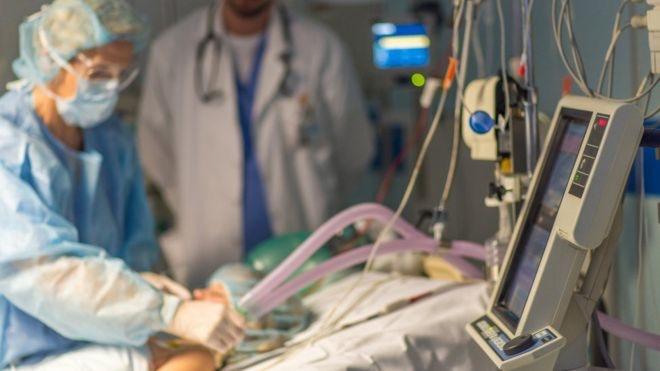Coronavirus: Vets 'may not survive' without financial aid
- Published

Meleri Wyn Tweed has been furloughed but worries about her regular patients
Many veterinary practices in Wales may not survive the coronavirus crisis without business rate relief and financial support, a group has warned.
The British Veterinary Association (BVA) said urgent action was needed to avert practice closures.
A recent survey found half of practices had seen turnover drop by 50% or more, with a quarter losing 75% of business.
The Welsh Government said it recognised the difficulties and was working with vets to outline support available.
The survey, carried out by the Royal College of Veterinary Surgeons, did find an improvement in the most recent figures from mid-May, with just 6% reporting a 75% reduction in turnover.
The lockdown and social distancing measures have had a significant effect on practices which have put staff on furlough and rearranged rotas and teams to reduce human contact.
Generally, vets can only deal with emergency cases. Many vet practices are operating a closed-door policy and have measures in place to make sure animals can be handed over safely without contact.
Cases are being assessed over phone while farm vets are carrying out procedures such as lambing and calving keeping social distancing measures in place.
Meleri Wyn Tweed, a vet who cares for small animals in Swansea, has been on the furlough scheme since the lockdown.
"Out of six vets, there are only two working in the practice at the moment, and the turnover has dropped dramatically," she told BBC Wales.
Meleri is also concerned about her patients, and their owners' situation.
"I have been caring for some for years, and I fear that they are not getting the treatment they need to keep them comfortable. They are animals on maintenance treatment, that don't fall into the emergency bracket.
"We are already starting to see people cancelling insurance policies or not being able to afford to take them out. And I would urge owners to try and keep those policies as they are likely to need them in future."

Rhys Beynon-Thomas can need close assistance from farmers with emergency calving births
As Rhys Beynon-Thomas is a farm veterinary surgeon, he has been able to continue to work in Carmarthenshire.
"While on a farm, we try and keep to the two-metre rule, and I always tell the famer that I'll stay at the back end of the cow, and the farmer stays at the head, and that's roughly two metres!" he joked.
He is feeling the strain when dealing with emergencies.
"With a Caesarean [birth], you need some strength from the farmer, and there is no way you can lift a 70-kilo calf yourself.
"You've got to have the farmer's strength. And with both of us being key workers, we accept that sometimes we have to work side by side," he said.
According to Ifan Lloyd, president of the Welsh branch of BVA, it is difficult for practices to reduce staff numbers adequately, as they have an obligation to provide a 24/7 service.
"Routine work, which has now stopped, is probably the most profitable, while emergency services are the least profitable," he added.
A Welsh Government spokesperson said: "Veterinary practices are eligible for a £10,000 grant, as part of the Non-Domestic Rates Relief Scheme as long as they have a rateable value of £12,000 or less.
"Those who are self-employed and have a rateable premises with a rateable value of £12,000 or less will benefit from this package of support.
"We will continue to engage with the veterinary profession in Wales to ensure that we fully understand the impacts of Covid-19 on the important services that they deliver."
- Published4 April 2020

- Published9 April 2020
